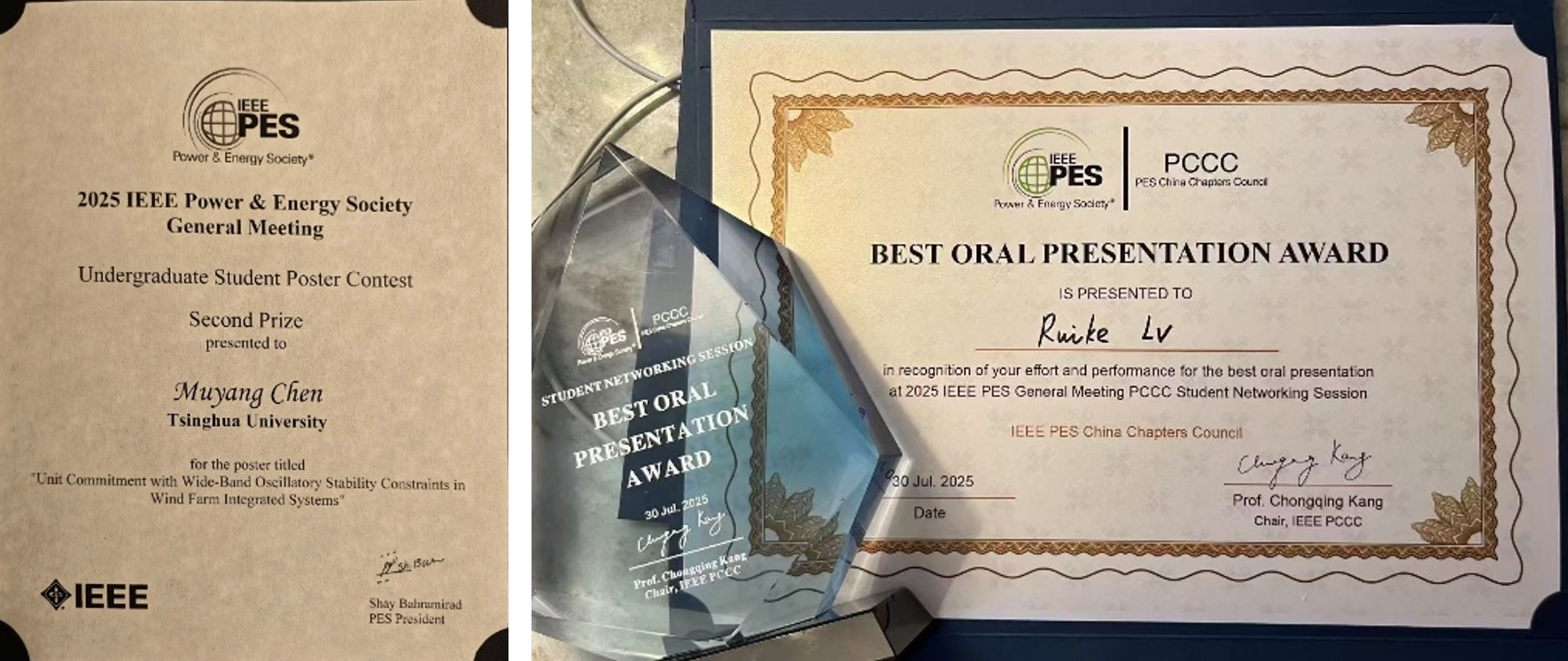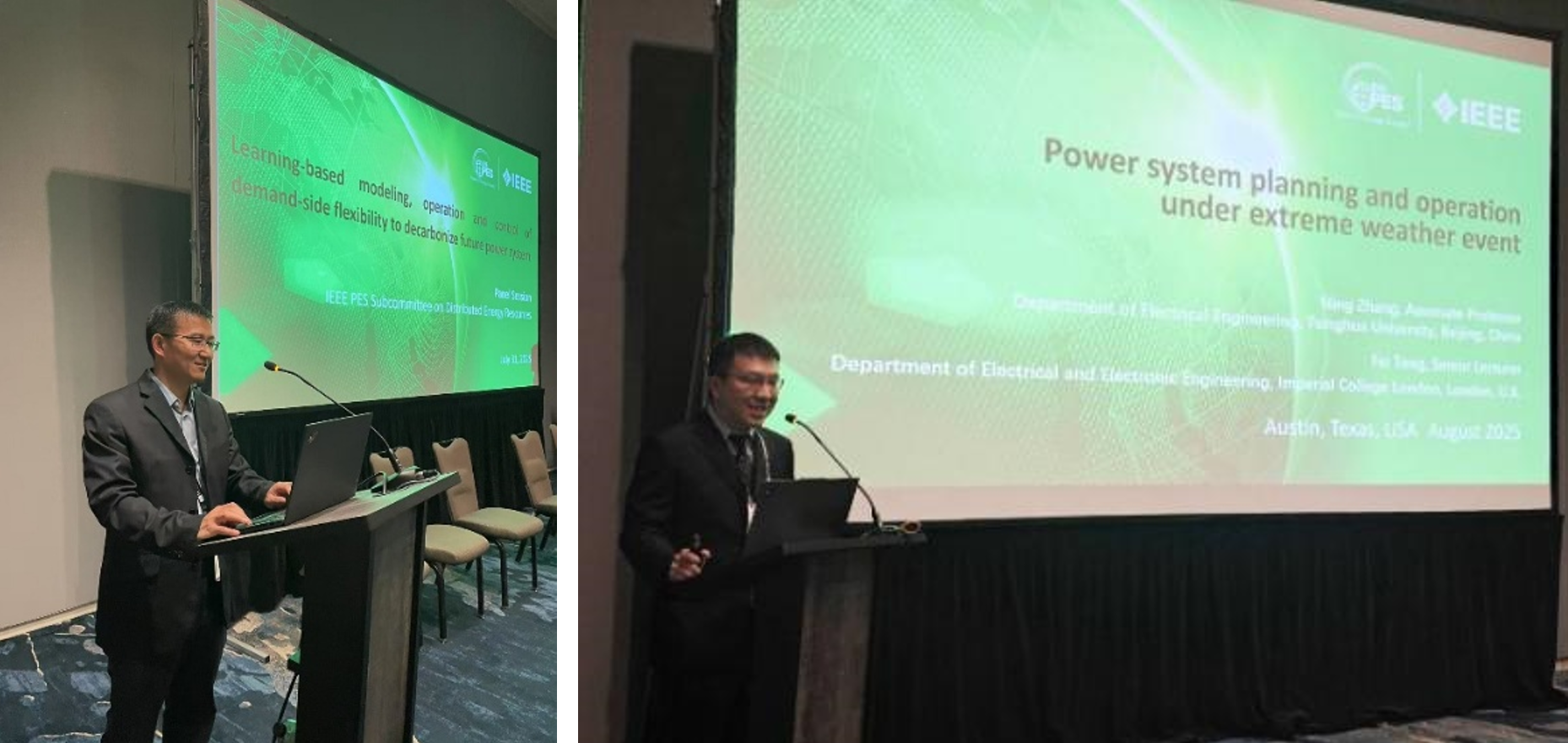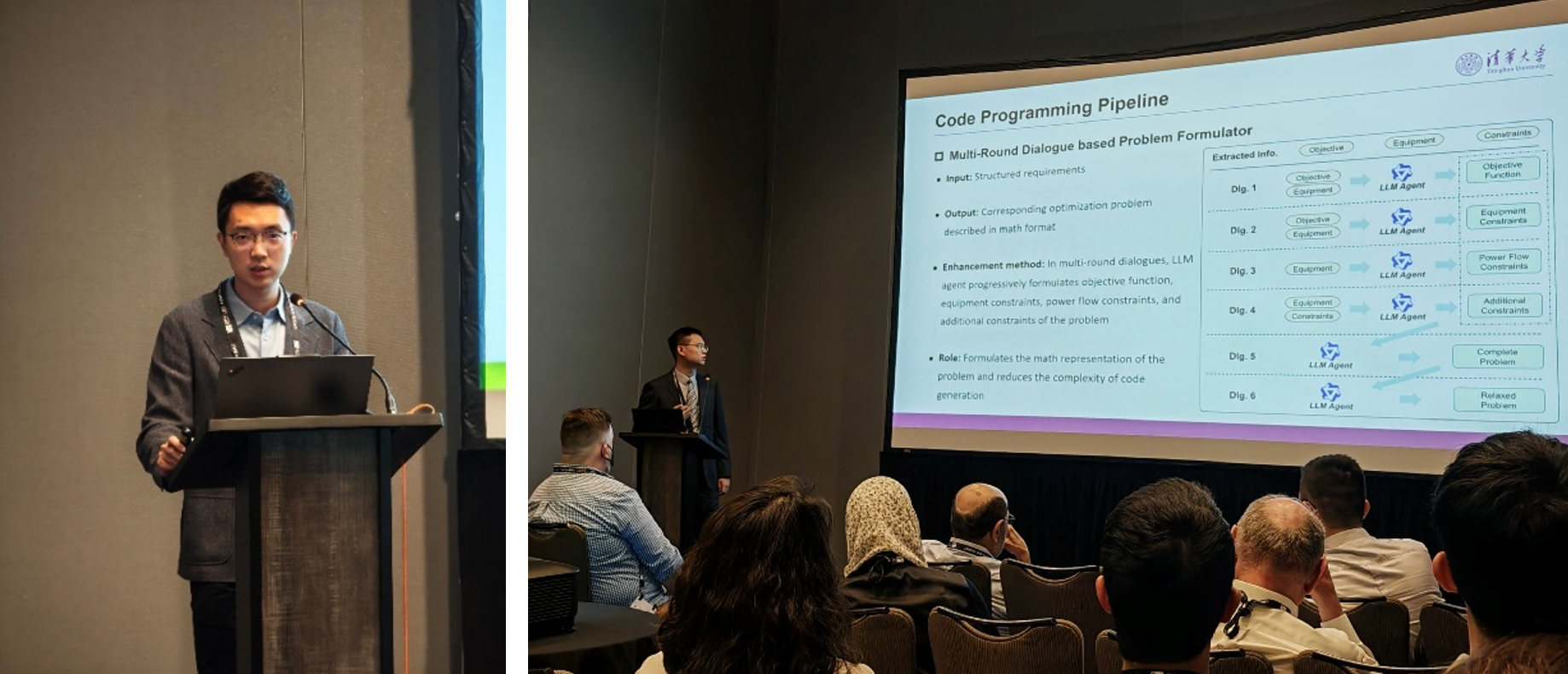From July 27 to 31, the 2025 General Meeting of the IEEE Power & Energy Society (PES) of the Institute of Electrical and Electronics Engineers (IEEE) was held in Austin, USA. The conference, themed “Achieving Deep Decarbonization in the Electric Power System”, brought together over 3,500 researchers and engineers from the global power and energy field. Attending from the Department of Electrical Engineering and Applied Electronics (EEA) were Dean Kang Chongqing, Professors Dong Xinzhou and Hu Zechun, Researcher Wang Bin, Associate Professors Zhang Ning and Zhong Haiwang, Associate Researcher Guo Hongye, Assistant Researcher Lin Chenhui, as well as dozens of postdoctoral researchers and PhD students.
Faculty and students actively participated in conference exchanges. A total of 22 papers from the department were accepted by the conference. Several students presented their research through oral presentations and poster sessions, exchanging results with international peers. Notable achievements included undergraduate student Chen Muyang, whose poster on “Unit Commitment with Wide-Band Oscillatory Stability Constraints in Wind Farm Integrated Systems” won the Undergraduate Student Poster Contest Second Prize among over 400 entries. PhD student Lv Ruike received the IEEE PES General Meeting PCCC Student Networking Session Best Oral Presentation Award.

Chen Muyang won the Undergraduate Student Poster Contest Second Prize (left), and Lv Ruike received the IEEE PCCC Student Networking Session Best Oral Presentation Award (right)
Some teachers chaired or participated in multiple panel sessions. Hu Zechun chaired the panel on “Learning-based Modeling, Operation and Control of Demand-side Flexibility to Decarbonize Future Power System” and presented on “Modeling and Forecasting the Flexibility of Large-scale Demand Side Flexible Resources”. Zhang Ning chaired the panel “Power System Planning and Operation under Extreme Weather Event”, where Guo Hongye presented “How Electricity Markets React to Extreme Weathers?” and postdoctoral researcher Jiang Haiyang presented “Re-understanding of the Characteristics of Renewable Energy and Long-term Balance Analysis Technology of Power System”. Lin Chenhui participated in the panel “AI-enabled Energy Internet and Energy System Integration”, presenting on “Enable Large Language Models in Active Distribution Network Operation”.

Hu Zechun (left) and Zhang Ning (right) chairing panel sessions

Guo Hongye (left) and Lin Chenhui (right) presenting at panels
Some teachers also chaired or participated in various IEEE PES technical committee and working group meetings. Zhang Ning, as vice chair, organized the Working Group on Assessment of Power System Flexibility. Zhong Haiwang, serving as IEEE PCCC Deputy Secretary, organized the inaugural IEEE PCCC Special Session during the conference, participated as the only representative from China in the IEEE Future Direction Workshop on renewable energy generation and storage, initiated the Urban Power Grid Resilience Enhancement Against Extreme Events working group as Chair, and participated in the IEEE PES Joint WG/TF Meeting and Workshop on Natural Disaster Mitigation and Grid Resilience. Guo Hongye attended the Working Group on Market Design and Operation and the Working Group on Machine Learning for Power Systems. Lin Chenhui participated in the IEEE PES Energy Internet Coordinating Committee (EICC) meeting and presented the EICC annual development report. Several teachers attended the Bulk Power System Planning Subcommittee meetings.
Teachers and students of the department deeply engaged in the conference, discussing cutting-edge technologies, challenges, and opportunities for deep decarbonization of power systems with global experts. The meeting effectively promoted international collaboration, provided young scholars with valuable global exchange opportunities, and strongly advanced EEA’s research innovation and global influence in the forefront of energy and power systems.

















 News & Events
News & Events